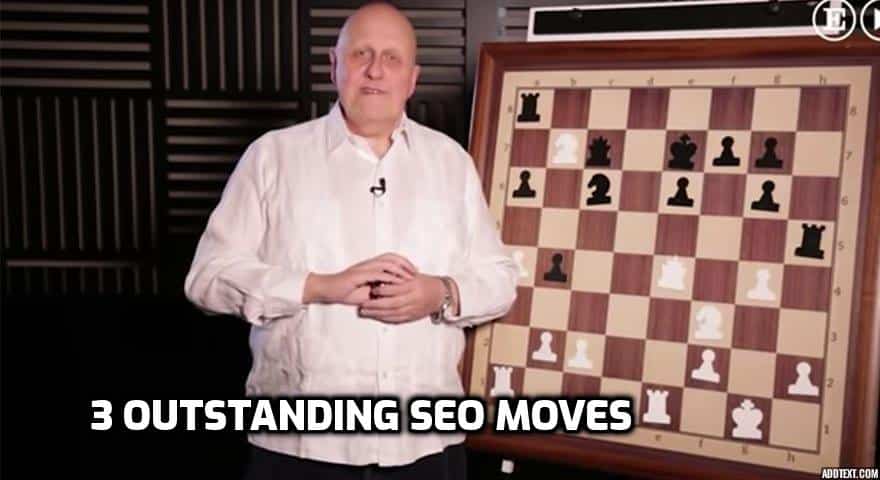Writing or ordering text for SEO can be an anguish, especially if, for example, you are positioning the website of a manufacturer of suction-press flail shredders. So if your pen has lost its former prolificacy, don’t worry: I hereby present 3 quick and, above all, free ways to produce extensive, robust content and avoid duplication.
Unfortunately, the ideas are so bad that I’m only doing this as a curiosity.
Spis treści
Way 1: Make a unique text even from “Pan Tadeusz”
Give me a text and I will make it unique. Don’t believe it? There you go, here’s a sample:
Litwo, Oјczyzno moјa! ty јesteś јak zdrowie
Copy the text above, and paste it into Google. The specified phrase was not found. Surprise?
You can clothe it in quotation marks, and I still guarantee you won’t find another text like it in the entire Internet.
Here I used a trick with homoglyphs, that is, letters of different alphabets with identical or nearly identical appearance.
In the above example, I have replaced all the letters “j” with almost identical “ј”, which is the letter Jj in Serbian, Macedonian and Azeri Cyrillic .
Homoglyphs we have hundreds if not thousands to choose from – here I toss them neatly collected on GitHub.
With thousands of homoglyphs at our disposal, we can make even the text “Lorem ipsum” unique. Goodbye duplication of content!
The idea is silly, of course, because by replacing selected letters we get rid of not only duplication, but also any sense in our content.
A word written in a different alphabet, using a different Unicode symbol, completely loses its original meaning. We might as well paste a string of random characters into the page.
Rather, the idea is good only for combiners dreaming of completing an undergraduate thesis.
Alternatively… If we have a store with unique descriptions and at the same time trade on Allegro…. 😉
I learned the trick courtesy of the service providers at Fiverr. Despite the fact that immediately after pasting the text, Notepad highlighted numerous errors for me, no one refunded the money for the gig. In Fiver pecunia non olet 😉
Way 2: A scientific text from an Oxford professor in 3 minutes? There you go!
A trick as old as the world, or at least as old as Black Hat SEO, is to translate finished articles from one language to another.
So I won’t go into detail about it; it would probably only be worth writing that using Google translator for this is a shot from a cannon in the foot. Here we are messing with a beast that has created its own language for itself for translation purposes – I’m not saying with 100% efficiency, but it is certainly capable of detecting this kind of plagiarism.
In contrast, the level of translations by other translators sometimes varies. I personally know of one translator who translates scientific texts at an excellent level, but I have pledged to the grave to keep his address a secret.
In general, sourcing content in this way is treading on thin ice, morally questionable, ethically questionable, legally questionable, and most importantly: with potential consequences for the visibility of the site.
Good translation plus spin of the text is not so bad in the end. But outside of sites created for testing, I officially strongly condemn. 😉
Way 3: Truly unique text, obtained by truly illegal means
The third way is actually the best; it certainly requires very little work, and can produce very good results. There is only one problem: it is illegal.
Assuming, for example, that we are faced with writing a boring argument about pregnancy health because we jerked off to the positioning of a medical portal, we could hire a doctor to do it, or at least buy a stock photo of a doctor and write the text by hand. In both cases, it’s a waste of time and money.
After all, we can look for ourselves some long-expired domain, if only on Expireddomains.net, search the addresses by sorting them by presence in archive.org, and then go to the archived site and brazenly copy all the texts there, checking beforehand that they are definitely all unique. Simple.
That’s how, after 3 minutes of searching, I already have more than 10 articles on the topic I’m interested in, for example, from the now-defunct website zdrowystart.pl
The problem, however, is that, although the site no longer exists, there is a copyright owner for the texts, in this case in the form of the Poznań-based Voice for Life Foundation. And while he would probably never know about our petty theft, do we need to provide the world with further proof that SEOs are people stripped of all morality?
How about.
How about putting a little more of your own effort into developing the content on your site? The truth is that you don’t have to be a specialist in a particular field to be able to create something interesting. Ultimately, collecting interesting links and sources into one article is also valuable content.
What if, using the example from the introduction, we are positioning the website of a manufacturer of flail suction and pressing shredders? Content is not everything. Let’s do the links, refine the onsite to perfection, and let’s give up on texts at some point. This will reduce the rate of depressive disorders among copywriters.
And if you insist on content at all costs, I recommend the above ways. One less competitor 😉









